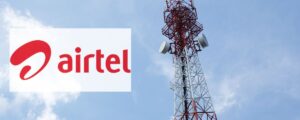
The Indian Broadcasting and Digital Foundation (IBDF) has made an appeal to the Ministry of Information and Broadcasting (MIB) to exempt OTT platforms from the Broadcasting Services Regulation Bill 2023, arguing that they differ substantially from linear broadcasting platforms. Representing major broadcasters such as Disney Star, Zee, Sony, and Viacom18, the IBDF proposed that the draft bill should include the programme code and advertisement code for consultation, while the MIB suggested deferring their inclusion. According to the IBDF, the amalgamation of linear TV with OTT would constitute ‘reverse discrimination’ and potentially violate Article 14 of the constitution, as dissimilar entities cannot be treated equally.
The draft broadcast bill, introduced by the MIB on November 10 the previous year, seeks to replace the Cable Television Networks Regulation Act of 1995, which has been in effect for over three decades. It aims to expand the scope of broadcasting to encompass both broadcast content and distribution systems, including OTT platforms. The bill underwent a period of public consultation, with the deadline for comments initially set for January 15, later informally extended to January 26.
The IBDF expressed concerns that the proposal to establish a Content Evaluation Committee (CEC) could lead to the censorship of content on broadcasting platforms, potentially infringing upon the broadcasters’ freedom of speech and expression. As per the draft bill, content evaluation committees (CECs) would form part of a three-tier regulatory framework for overseeing content.
Only shows endorsed by the CEC would be permissible for airing on TV channels and OTT platforms. The composition of the committee would feature individuals from diverse socioeconomic backgrounds, including representatives from women’s, child welfare, scheduled castes, scheduled tribes, and minority groups. The central government would have the authority to specify the number of panel members, the required quorum, and other operational details concerning the CEC.
The IBDF also raised objections regarding the proposal for establishing the Broadcast Advisory Council (BAC), expressing concerns about its potential impact on the principle of self-regulation and the autonomy of its members.



